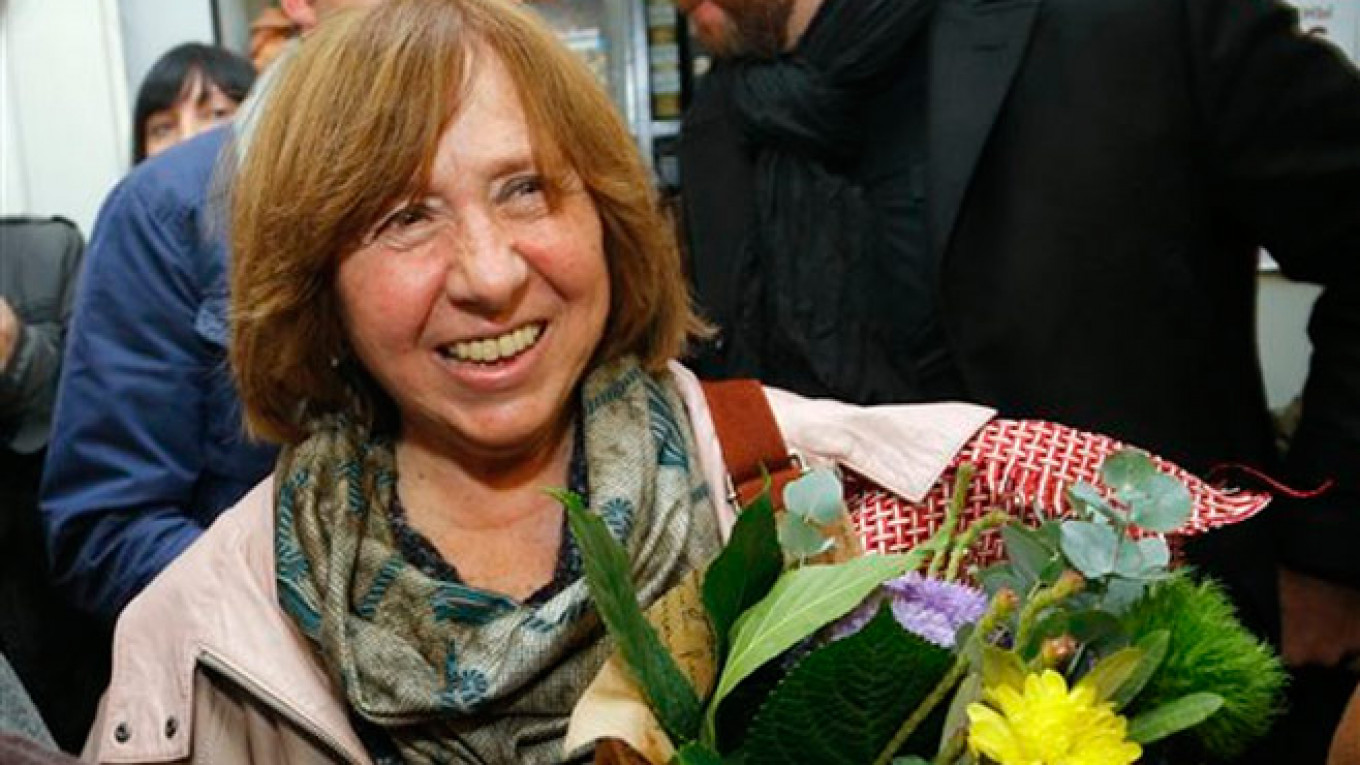Soviet dissident Alexander Solzhenitsyn won the Nobel Prize for Literature in 1970 and his book "The Gulag Archipelago" was first published in the West in 1973. The Soviet press ran large-scale propaganda campaigns in response to both events.
However, one publication was different — Literaturnaya Gazeta. Readers considered it the most progressive publication. The paper was so popular that it had a print run of 3.2 million copies, and yet it was still difficult to obtain a subscription. Kremlin spin doctors exploited that fact, placing their most rabid propaganda in the newspaper alongside "scathing" investigative reports on Soviet shortcomings in trade and housing.
Issue after issue of the paper featured entire pages filled with articles about Solzhenitsyn that carried such titles as "The Self-Incrimination of the Accuser," "Traitor to His Homeland," "The Logic of Moral Decline" and "The Shame of the Literary Vlasov" — a reference to those who supported Soviet World War II lieutenant general and eventual Nazi collaborator Andrei Vlasov. Nobody worried about the fact that they were accusing an honored battlefield veteran and the holder of two Soviet military medals of being a "Vlasov."
Their main charge: Solzhenitsyn opposed the peaceful policies of the Soviet state and must therefore have sold out to the United States.
Immediately after he received the Nobel Prize, Literaturnaya Gazeta published "An Open Letter From American Singer Dean Reed to the Writer Solzhenitsyn." It read, in part:
"You have branded the Soviet Union as a 'profoundly sick society, afflicted by hatred and injustice'… but you must be talking about my country, not yours! After all, it is America, and not the Soviet Union that has started wars and created this tension-filled situation! … The sick society is in my country, not yours, Mr. Solzhenitsyn! It is America, and not the Soviet Union, that has turned into the most violent society in the history of mankind."
Now, more than 40 years later, the Nobel Committee has awarded the prize for literature to Svetlana Alexievich, a Belarussian writer who writes in Russian. But most importantly, she is critical of the regime of President Vladimir Putin.
And what do you think? Immediately, that very same Literaturnaya Gazeta and another "institution of the creative intelligentsia," the Kultura newspaper, published articles that repeated practically word for word the things written about Solzhenitsyn in the 1970s. The similarities are striking.
In its most recent issue, Literaturnaya Gazeta wrote:
"Svetlana Alexievich is a classic anti-Soviet. … As before, the people of Russia do not share those anti-Soviet ideas. In addition, the vast majority supports Putin, and Alexievich's comments about the Russian president would make people at least wonder about the motives of the Nobel Committee.
"Even a child can understand that had Putin waited a week or two before starting his strikes against the Islamic State, Japan's Murakami might have won the Nobel Prize for Literature. After all, that would have been much fairer because, unlike Alexievich, Murakami is a real writer, and a good one.
"The Nobel Committee obviously based its decision on political considerations. Its primary purpose was to raise Alexievich's status and to draw attention to the author."
And assuming the role of Dean Reed, Italian journalist and political figure Giulietto Chiesa published the following words in the newspaper Kultura:
"Ms. Alexievich won the Nobel Prize for her statements that have no connection with reality. The award was used as an attack on Russia and Putin. It was a political action that had nothing to do with literature."
Putin's time machine has taken Russia several decades into the past.
Andrei Malgin is a journalist, literary critic and blogger.
A Message from The Moscow Times:
Dear readers,
We are facing unprecedented challenges. Russia's Prosecutor General's Office has designated The Moscow Times as an "undesirable" organization, criminalizing our work and putting our staff at risk of prosecution. This follows our earlier unjust labeling as a "foreign agent."
These actions are direct attempts to silence independent journalism in Russia. The authorities claim our work "discredits the decisions of the Russian leadership." We see things differently: we strive to provide accurate, unbiased reporting on Russia.
We, the journalists of The Moscow Times, refuse to be silenced. But to continue our work, we need your help.
Your support, no matter how small, makes a world of difference. If you can, please support us monthly starting from just $2. It's quick to set up, and every contribution makes a significant impact.
By supporting The Moscow Times, you're defending open, independent journalism in the face of repression. Thank you for standing with us.
Remind me later.


